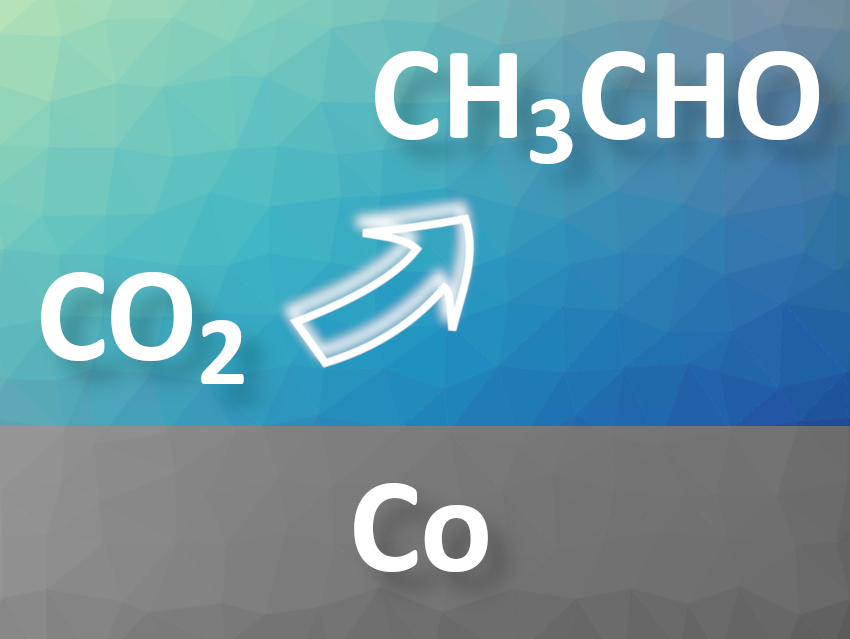CO2 is a greenhouse gas and contributes to climate change. Capturing CO2 and converting it to useful products is one approach to reduce its negative impact. The electrochemical reduction of CO2 to give value-added products such as ethanal is one possible pathway for this, but finding suitable electrocatalysts that promote the necessary carbon–carbon coupling and are selective for the formation of aldehydes is challenging.
Bolong Huang, The Hong Kong Polytechnic University, Hong Kong SAR, China, Pinxian Xi, Lanzhou University, China, Shouheng Sun, Brown University, Providence, RI, USA, and colleagues have developed a catalyst based on ferromagnetic hexagonal-close-packed (hcp) Co nanosheets for the selective electrochemical reduction of CO2 to ethanal. The team prepared aggregated Co nanosheets via a hydrothermal reaction of CoCl2 and hydrazine at 160 °C and obtained the desired separated nanosheets by exfoliation.
The hcp Co nanosheets were tested as the catalyst for the electrochemical reduction of CO2 in an aqueous solution. They reduced CO2 to ethanal, ethanol, and methanol with H2 as a byproduct. The catalyst reached a Faradaic efficiency of 60 % for the formation of ethanal, along with ethanol (10 %) and methanol (12 %) as minor products and is stable under the reaction conditions. According to the researchers, the work could offer a new direction for designing transition-metal catalysts for the electrochemical reduction of CO2.
- A New Hexagonal Cobalt Nanosheet Catalyst for Selective CO2 Conversion to Ethanal,
Jie Yin, Zhouyang Yin, Jing Jin, Mingzi Sun, Bolong Huang, Honghong Lin, Zhenhui Ma, Michelle Muzzio, Mengqi Shen, Chao Yu, Hong Zhang, Yong Peng, Pinxian Xi, Chun-Hua Yan, Shouheng Sun,
J. Am. Chem. Soc. 2021.
https://doi.org/10.1021/jacs.1c06877




